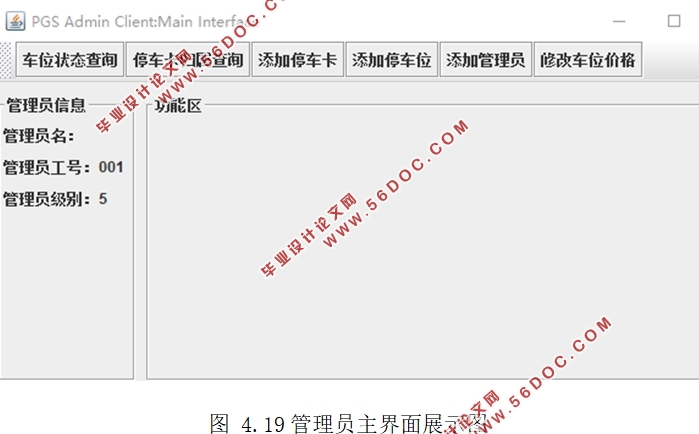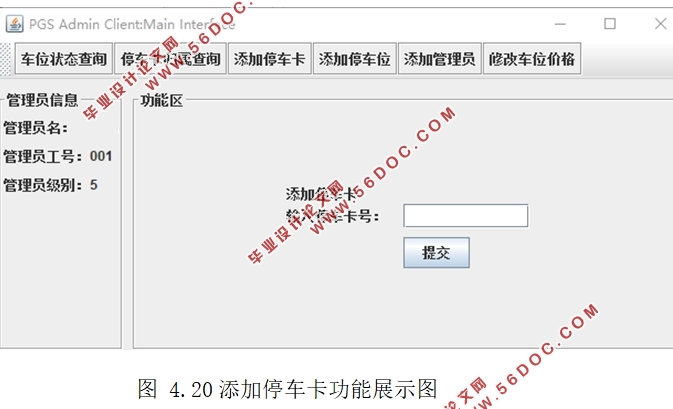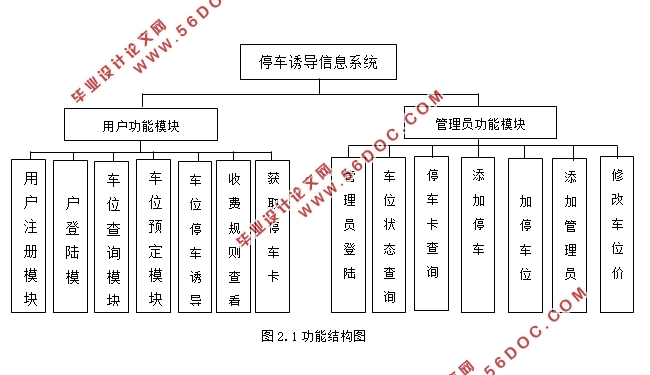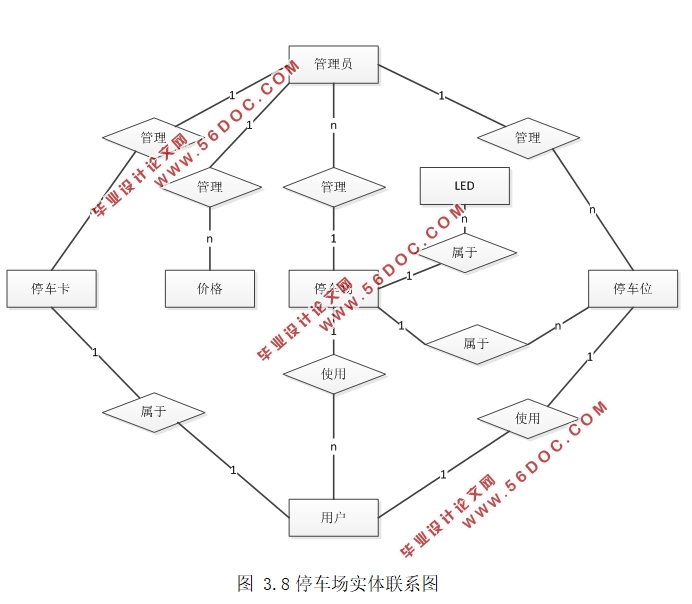基于RFID的停车诱导信息系统的设计与开发(Eclipse,MySQL)(论文15000字,参考代码,MySQL数据库)
摘 要:
最近几年我国迈开步伐大力开展国内经济建设,社会生活节奏愈发紧凑,大多数人为跟上社会的步伐选择以车代步,导致国内车辆保有量快速增加,出行停车问题日渐突出。当前不能迅速提高停车设施容量的情况下,利用科学的方法提高停车设施的资源分配效率或是一种更为合理的解决方方案。
本论文以提高停车设施资源效率的出发点,对停车诱导系统的设计与开发进行相关的研究。在总结概括停车诱导信息系统的基础上,论述阐明了系统体系结构,功能模块,用户需求以及建设基于技术的停车诱导系统的条件等问题,重点分析了RFID在停车场规模下标签识别技术的应用,制定了合理的停车诱导系统。以Java作为开发语言,用MySQL数据库作数据支撑,使用Eclipse,MySQL command Line Client开发平台。
关键词:停车诱导信息系统;RFID;标签识别
Design and Development of Parking Guidance Information System Base on RFID
Abstract:
In recent years, the pace of domestic economic construction has been vigorously carried out in China, the pace of social life is becoming more and more compact, and most people choose to follow the pace of society, which leads to the rapid increase in the number of vehicles in China, and the problem of travel and parking is becoming more and more prominent. At present, when the capacity of parking facilities can not be rapidly improved, a scientific method is used to improve the efficiency of resource allocation in parking facilities or a more reasonable solution.
In order to improve the efficiency of parking facilities, this paper studies the design and development of parking guidance system. On the basis of summarizing and summarizing the parking guidance information system, this paper expounds the system architecture, functional modules, user requirements and the conditions for building the parking guidance system based on technology. It focuses on the analysis of the application of the tag identification technology under the scale of RFID in the parking lot, and makes a reasonable parking guidance system. For developed this system, using Java as development language, using MySQL database as data support, using Eclipse, MySQL command Line Client development platform.
Key words:Parking guidance information system; RFID; tag identification




目录
1绪论 1
1.1研究背景 1
1.2研究现状 1
1.3研究目的 2
1.4相关技术介绍 2
1.4.1RFID技术介绍 2
1.4.2基于RIFD的停车诱导系统硬件技术介绍 3
1.4.3软件技术介绍 4
2系统分析 6
2.1 可行性分析 6
2.2 需求分析 6
2.2.1 功能图 6
2.2.2 功能要求 7
3系统总体设计 8
3.1系统架构 8
3.2数据库概念设计 8
3.3数据库逻辑设计 10
4系统实现 12
4.1用户注册模块设计 12
4.2用户登陆模块设计 14
4.3用户功能模块设计 15
4.4停车诱导功能模块设计 19
4.5管理员功能模块设计 23
5系统开发总结 29
5.1系统总结 29
5.2个人总结 29
5.3系统展望 29
参考文献 30
致谢 30
|









